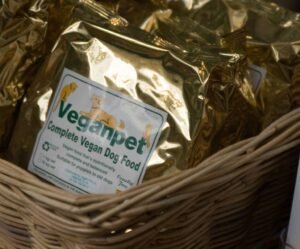Dogs don’t necessarily get everything they need from their diet alond. If a dog’s not receiving adequate nutrition, he can have a variety of health problems, including loss of energy, flatulence, skin difficulties, and other problems. In addition, your dog’s coat can become dull and he may not be as attentive as he usually is.
In part, this is because through the years man has domesticated the dog and their food has gone from a natural predatory and foraging diet to one of dry kibble and canned food. This, in turn, has caused nutritional deficiencies. Even though this was not intentional, these deficiencies can still cause problems and lead to digestive and health difficulties.
What Are Enzymes And Why Are They Necessary?
In most cases, feeding an enzyme supplement will correct many problems including digestive difficulties including gas and flatulence. Digestive enzymes are naturally found in the body and adding more of them to the diet simply aids digestion. Enzymes themselves induce chemical reactions within the body that help break down food.

Enzymes are of two different types. One is a protein called apoenzyme, while another is a nonprotein. The nonprotein can be either a cofactor or coenzyme. Every cell in every living thing contains enzymes. This includes plants, animals, et cetera. Enzymes regulate biochemical reactions that help keep the plant or animal functioning and sustain its life. If a dog’s digestive system is upset, there can be undesirable results.
Digestive enzymes for them can help put things back in balance. However, with a diet such as that of domesticated dogs, which mostly has canned dog food and dry kibble as its source, enzymes may in fact have to be introduced in the form of supplementation versus a raw natural diet.
Dog digestive enzyme supplements greatly assist in correcting and eliminating most digestive problems. With digestive enzymes introduced, dogs have more energy, their coats are shinier and skin problems are at a minimal. In addition, other digestive side effects such as gas or flatulence will be reduced or eliminated. It should be noted that even if owners feed their pets “top-of-the-line” dog food, they can still have digestive problems. This is because commercial dog foods have been so processed and are quite far removed from a dog’s natural diet. In fact, they are not naturally able to digest this type of diet properly, because the diet does not have the necessary enzymes required by the canine body.
In the wild, canines such as wolves eat a raw diet and first consume the organs that contain vitamins and nutrients followed by muscle. These natural diets include nutrients known as digestive enzymes that assist in digesting food. However, domesticated canines such as dogs cannot receive these vitamins, minerals and other nutrients such as enzymes from their diets because most do not receive a raw diet. Therefore, they need enzymes in the form of a supplementation added to their daily meal. Even though dogs, just as wolves, are naturally designed to consume raw prey, they do not receive this unless the owner makes a special effort to give a dog a raw diet. Therefore, given a more cost-effective diet of kibble and canned food must then have these enzymes replaced.
Age, Health And Longevity
This is important for dogs of all ages, but is especially important for older dogs. However, owners should also know that if a puppy is started on digestive enzymes, this will greatly increase the dog’s health. This is because they are given many more years of proper digestion and therefore receives better nutrition. This will keep your dog healthier as he ages.
In addition, digestive problems that often show up later in life will not show up at all. As dogs become older, they can become more sensitive to their diet, so including enzymes in his every day diet will only ensure a healthier old age and life in general.







